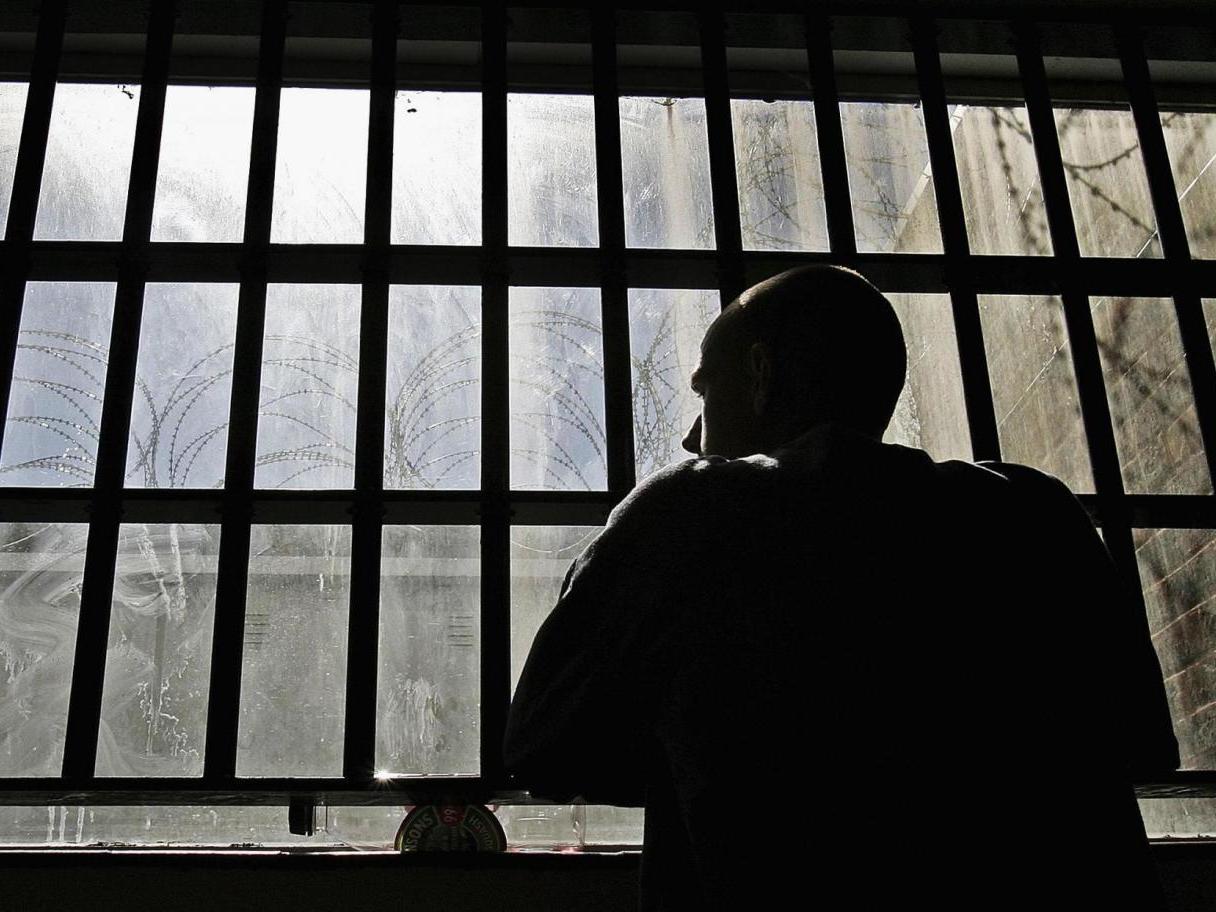Coronavirus: Prisoners with symptoms not allowed to shower or exercise for up to two weeks
Ministers urged to ‘step up’ and end overcrowding in jails

Prisoners with coronavirus symptoms have been prevented from showering or doing exercise for up to 14 days, a new report from the prison watchdog has revealed.
The Prison Inspectorate said tightened restrictions in three large men’s local prisons meant inmates were often out of their cells for only 30 minutes per day, while those who were symptomatic had sometimes gone weeks without showering or exercising.
The report, based on three one-day visits to HMP Altcourse in Liverpool, HMP Elmley on the Isle of Sheppey and HMP Wandsworth in London on 28 April, forms part of the watchdog’s new approach to visiting prisons and other places of detention while adhering to health guidance, to meet its duty to report publicly on treatment and conditions during the Covid-19 crisis.
Chief inspector Peter Clarke said: “The vast majority [of inmates] were locked up for nearly the whole day with usually no more than half an hour out of their cells. We found some examples of even greater restrictions.
“In one prison, a small number of symptomatic prisoners had been isolated in their cells without any opportunity to come out for a shower or exercise for up to 14 days.”
As of Sunday, 411 prisoners had tested positive for Covid-19 across 74 prisons, and 540 prison staff had tested positive across 71 prisons.
The Ministry of Justice (MoJ) announced at the start of April that as many as 4,000 prisoners who were within two months of their release date and had passed a risk assessment would be freed under an early release scheme. Ministers admitted on 12 May that just 57 had actually been let out.
The new report revealed that only one man across the three prisons had been released under the scheme, and noted that the population of the prisons had not been significantly reduced and a large number of those arriving were recalled prisoners serving short periods.
Mr Clarke said that overall the three jails were found to be stable, with prisoners mostly supportive of the “extreme” regime restrictions aimed at keeping them safe. But he also struck a note of caution, observing that the jails faced potentially greater challenges in coming months as they tried to ease restrictions and reintroduce more purposeful regimes.
The loss of visits had also had a considerable impact on all prisoners and, while in-cell telephones were a “great help”, not enough had yet been done to expand the use of video calling to better compensate for the loss of face-to-face contact, the report said.
Shadow justice secretary David Lammy said the news that some prisoners were being locked in cells for two weeks without being allowed to shower was “incredibly concerning”.
He added: “These conditions are not sustainable or acceptable for the many months it is expected to take to get a Covid-19 vaccine. The MoJ must set out a road map for easing the severe temporary restrictions that were brought in, which run parallel to plans for the broader population, including testing, tracing and PPE.”
Peter Dawson, director of the Prison Reform Trust, said the findings showed there was “absolutely no room for complacency” about the crisis in UK prisons, and called on ministers to “step up and end the overcrowding which turns a difficult situation into a dangerous one”.
Phil Copple, director general of prisons, said: “In the face of extraordinary challenges, staff at these three prisons have worked hard to protect the men in their care and the wider public. I am pleased this has been recognised by the inspectorate.
“Both the chief inspector and I have been struck by prisoners’ support for the necessary restrictions. This was made possible by the clear communications, strong leadership and support from our health partners which were identified by inspectors, and I am grateful to everyone for their efforts.”
Subscribe to Independent Premium to bookmark this article
Want to bookmark your favourite articles and stories to read or reference later? Start your Independent Premium subscription today.

Join our commenting forum
Join thought-provoking conversations, follow other Independent readers and see their replies